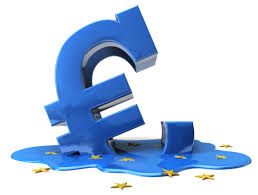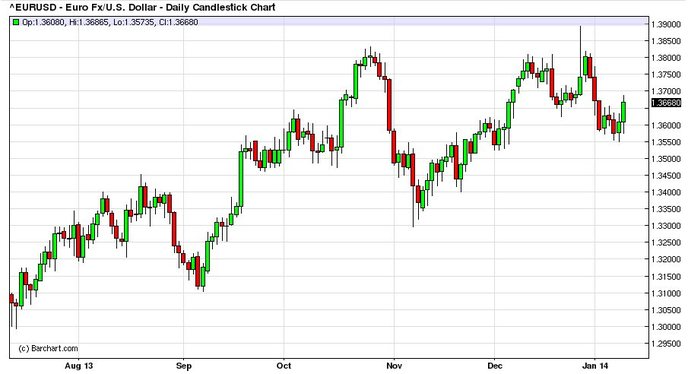By Masterforex-V, Investing.com
Apparently, Greece has become a newsmaker in the European Union recently. It happened because of the Greek presidency of the EU Council has started. And secondly, after five years of acute social and economic crisis, Antonis Samaras, the Greek Prime Minister, recently made a statement that his country had overcome the crisis. The outcome of Greece in 2013 as its economic well-being may affect the development of the EU and the euro rate, as noted by the analysts of the Masterforex-V World Academy.
Greece has everything – even a prolonged crisis.
So, during the last few years Greece was a source of news and frightening apocalyptic predictions. According to Samaras, now the country is out of the crisis, in any case, it is no longer necessary to seek each month for loans in order to survive.
However, there is still some progress on the country's withdrawal from the crisis. For example, last month, Moody's raised the credit rating of Greece to "Caa3" with a stable outlook, the budget balance is aligned (the current budget deficit is about 1% of GDP compared to 6.8% of GDP a year earlier), Athens was able to achieve a primary surplus of a budget of more than 2.5 billion euros , etc.
However, it is useful to recall that the price of such an effect was not so much due to the reforms, but due to the austerity measures. The reduction of salaries and pensions by a quarter (minimum wage today – is about 684 euros, the EU, by the way, requires a further reduction of up to 600 euros per month), the abolition of overtime, the constantly rising prices for utilities, the VAT rise from 19 to 23 percent, etc.
That's why the expert community, not burdened with the public affairs, is more restraint. They believe that it is too early to say that everything bad in Greece is behind:
– GDP has dropped for another year more than in any other EU country. It is sufficient to say that the country has been in a recession for the sixth year in a row. The greatest achievement for all these long years has been slow-downs of the GDP fall to 4.5 per cent in 2013. But Greece's economy decreased by nearly 25 percent for the period 2008-2013.
– Record unemployment. There are nearly a quarter of Greek residents that don’t have a job today (a record of unemployment in the history – is 27%), which is almost two times higher than in the whole European Union (Austria’s and Germany’s unemployment rate is on the average level at 5%). This is the highest rate in the Eurozone. The particularly sorrowful situation with youth unemployment – it is over 60 percent. This can lead to an even greater surge of social unrest in the country.
– A large national debt. Its debt is not decreasing, but on the contrary, growing more and more. So, in the 2nd quarter of last year it rose to 169.1 percent of GDP against 160.5 percent for the 1st quarter. According to the estimates of the IMF, Greece in addition to those 240 billion euros that it has already received from creditors, needs 11 billion – 4.4 billion euros in 2014 and 6.5 billion – in 2015.
In general, as rightly notes the analyst of the Masterforex-V World Academy, the continued provision of the financial assistance to Greece only worsens the economic situation in the country.
A Greek crisis is not as bad for the EU, as it is painted.
It is clear that the situation has not developed very well in Greece. What threatens to the EU in such a case and to the euro in particular? Especially that the economic outlook for the Eurozone in 2014 is quite restrained; the economy will grow, but slowly (it is projected to grow by 1.1%). Nevertheless, the experts of the British financial services, Barclays Plc. announced Europe to be the most attractive investment region in 2014. It is expected that European stock markets could rise by 27 percent. But at the same time – these are only predictions.
As for the past 2013, the situation is worse:
– The GDP of the Eurozone decreased by 0.4 percent in the third trimester of 2013. That is, until the Eurozone GDP growth quarter to quarter and year on year – continues to decline. And then, as suggested by the famous economist, Mikhail Khazin this growth is largely drawn, that is stimulated by the emission. It turns out that it is not a growth, but a redistribution of emission money.
– The deficit of credit institutions is increasing in Greece, Ireland, Italy, Portugal and Spain (the most conservative estimate, it is already 10 trillion Euros).
– The unemployment rate in the Eurozone has exceeded a record 12 per cent.
– The Government debt to GDP, despite of all efforts to optimize budgets in the first half of 2013 rose and didn’t close the requirements of the Stability and Growth Pact (no more than 60% of GDP for each country), and moved away. So, the debt of France in 2013 rose to 93.4 percent of the production volume.
– The euro against the U.S. dollar on such statistics will be cheaper in Forex trading. " So, most of the Forex analysts surveyed by Bloomberg predict that the euro will fall in price to 1.33 U.S. dollar by the end of the first quarter, and by the end of 2014 – up to the level of $ 1.28 ," – said the experts of the Masterforex-V World Academy.
"The euro against the dollar is trading at 1.3668 dollars per euro from 1.3575 dollars per euro earlier," – mentioned in the research department Forex Broker Forex Trend (Forex Trend is a leader of the ranking of the recommended Forex brokers at the Masterforex-V World Academy):
But one should not downplay the "Athens factor ". Firstly, Greece, along with Spain, Italy and Portugal, will continue to hinder the development of the EU economy (especially against the background of the French problems). As it is known, the second largest economy of the Eurozone is in crisis. In the third quarter of 2013, the GDP in France fell by 0.1 percent. And secondly, the failure of Greece and its exit from the Eurozone would be a terrible blow to the image of the “United Europe” it could also lead to a “domino effect”, to become a negative example for other countries in the Eurozone. But Brussels couldn’t afford this. This explains the large-scale financial aid to Greece from creditors. In the EU they cannot only count money but spend it wisely.




















